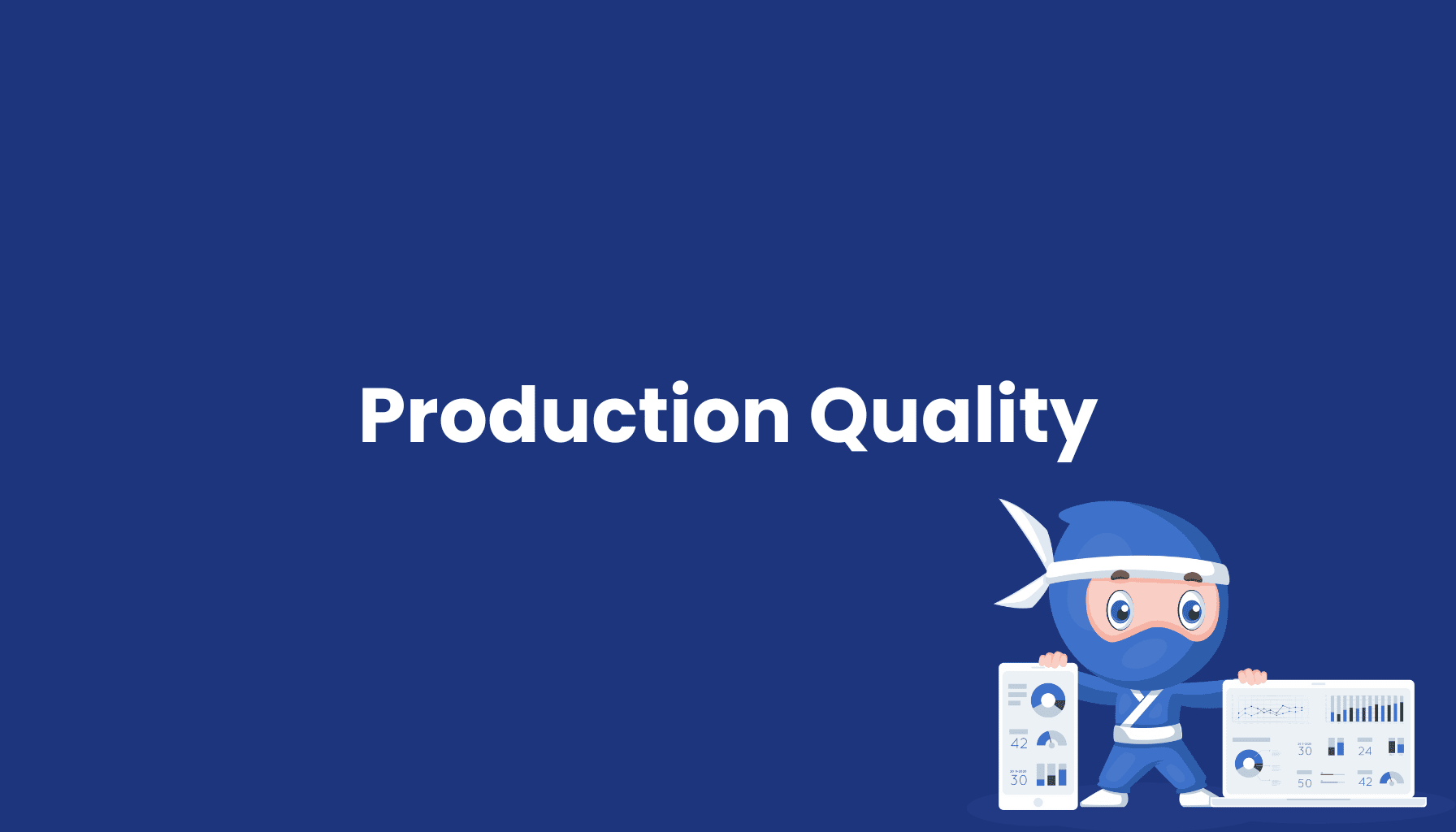Production Quality

What is Production Quality?
Production quality refers to a company’s ability to consistently manufacture products that meet defined quality standards and customer expectations. It plays a pivotal role in a company’s competitiveness, directly influencing customer satisfaction and the market positioning of its products.
Importance of Production Quality
Production quality is a critical success factor across industries, especially in highly regulated sectors like automotive, medical, and food production. Companies that achieve high-quality standards build customer trust, enhance satisfaction, and establish a competitive edge. Additionally, maintaining consistent production quality minimizes waste, rework, and complaints, reducing costs and increasing profitability.
Steps to Improve Production Quality
-
Establish Quality Standards:
Clear quality requirements and product specifications should be defined as the foundation for quality assurance. These standards ensure all subsequent production steps align with the company’s goals. -
Quality Assurance and Control:
Regular quality checks throughout the production process are crucial for meeting set standards. Techniques like Statistical Process Control (SPC) and sampling inspections help identify potential quality issues early. -
Optimize Production Processes:
Implementing methodologies like Lean and Six Sigma can help identify inefficiencies, remove bottlenecks, and streamline processes to enhance product quality. -
Leverage Advanced Technologies:
Tools like Artificial Intelligence (AI) and the Internet of Things (IoT) are instrumental in improving production quality. AI-powered systems analyze data to detect patterns and identify potential quality issues, enabling proactive resolutions. -
Employee Training and Awareness:
A well-trained workforce is critical to maintaining high production quality. Targeted training programs and raising employee awareness of quality assurance procedures increase attention to detail and reduce errors.
The Role of Industry 4.0 in Production Quality
The advent of Industry 4.0 has revolutionized production quality. Connected machines and IoT devices provide real-time monitoring of production processes, while Big Data analytics and AI applications help detect and resolve quality issues before they impact production or products.
Example of Industry 4.0 in Production Quality:
An IoT sensor in a manufacturing plant can monitor humidity levels in real-time, which might affect product quality. If humidity exceeds a set threshold, automated systems can adjust environmental conditions to maintain consistent product standards.
Technologies and Methods to Ensure High Production Quality
-
Quality Management Systems (QMS):
Software solutions designed to monitor and manage production quality. QMS allows tracking of quality metrics, ensuring compliance with standards and regulations. -
Total Quality Management (TQM):
A company-wide approach involving all employees and departments to improve quality continuously. TQM fosters a culture of ongoing improvement and ensures consistent adherence to quality requirements. -
Statistical Process Control (SPC):
A method for monitoring and controlling production quality using statistical tools. SPC helps identify deviations and enables timely corrective actions to maintain standards.
Challenges in Ensuring Production Quality
-
Complex Quality Requirements:
Products with intricate designs or specifications often require stringent quality controls, which can pose challenges in maintaining consistency. -
Workforce Shortages:
Ensuring high production quality demands skilled personnel capable of monitoring processes and responding quickly to issues. -
Technology Integration:
Adopting advanced technologies like AI and IoT requires careful planning and execution to maximize their benefits for production quality.
Advantages of High Production Quality
-
Enhanced Customer Satisfaction:
Consistently high-quality products meet or exceed customer expectations, fostering loyalty and trust. -
Reduced Operational Costs:
Improved quality minimizes waste, reduces rework, and lowers costs related to product recalls or warranty claims. -
Competitive Advantage:
Superior production quality helps businesses differentiate themselves, gaining a stronger foothold in competitive markets.
Conclusion
Production quality is a cornerstone of business success, impacting customer satisfaction, market competitiveness, and operational efficiency. By adopting advanced quality management methodologies and leveraging cutting-edge technologies like AI and IoT, companies can enhance their production quality and set themselves apart in the marketplace. Continuous process optimization and quality control ensure the consistent delivery of high-quality products, securing long-term success and sustainability.





